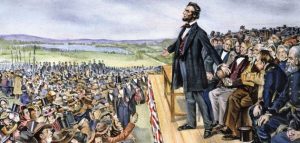John 6.24-29

When Harry was 18 he left home to go to college and was suddenly faced with a whole set of questions most of which had little to do with study and much more to do with navigating life. Questions about friendship and intimate relationships, managing money and time, what to do socially. Then deeper questions came into view about what type of person should he be? How much should he swear? How much should he smoke or drink? Was there a purpose to drive his life or will it just happen? When Harry left college he was then faced with career decisions, buying a house, wanting to find a life partner and then having made those first decisions there was the question, was that enough? Harry remained in good health and looked forward to retirement when he could do what he pleased. He looked back over the previous 40 years and along the way he had enjoyed his marriage, children and now grandchildren, was that enough? When Harry was alone, away from the all-consuming every day activity, he knew, that lovely as much of his life had been in the end there remained big gaps when the answer to his question as an 18 year old, was there a purpose to his life or will it just happen, had not been responded to and he was still avoiding it.
The crowd that followed Jesus from one side of the Sea of Galilee to the other and back again were the equivalent to 1st century Harrys. There life was taken up with questions concerning the everyday. Jesus addressed their deeper need through the everyday. He knew that they had seen signs, especially the miraculous feeding of the crowd, about who he is and the purpose of life but failed to understand them. Life for them was generally hard and feeding the family was pretty much top priority. Jesus wanted so much more for them.
Jesus answered, ‘Very truly I tell you, you are looking for me, not because you saw the signs I performed but because you ate the loaves and had your fill. Do not work for food that spoils, but for food that endures to eternal life, which the Son of Man will give you. For on him God the Father has placed his seal of approval.’ John 6.26,27
Everything they had in life they had to work hard for and the crowd then took the Jesus statement to work for food that does not spoil as a set of things to do to earn eternal life. They lived in a culture where you only got what you worked for and their religion was largely a set of onerous rules to be obeyed. Jesus redefined for them what the work involved. ‘The work of God is this: to believe in the one he has sent’ John 6.29
Can that really be true? It still goes against the grain doesn’t it? We still live in a culture where we strive for a purposeful life. Jesus is being very clear, the start of a truly purposeful life as defined by God is to believe in the one God sent, Jesus.
That was such a difficult lesson for the crowd and hard to accept. It remains so now. To accept it one needs to hear the love with which the words were said and realise that the one saying it was soon to give his life for the crowd he was speaking to.
Where are we looking to give purpose to our lives?
BREAD OF HEAVEN




